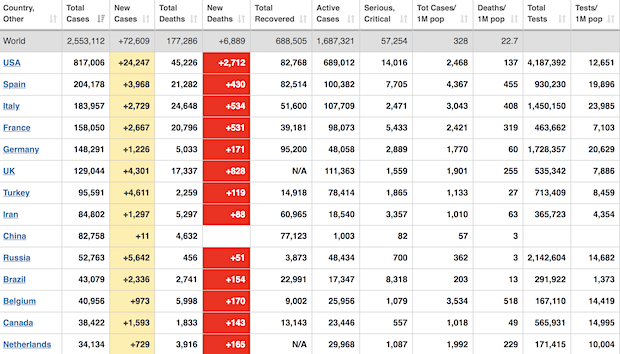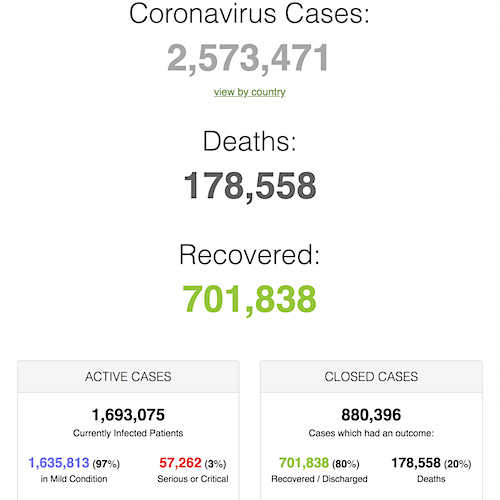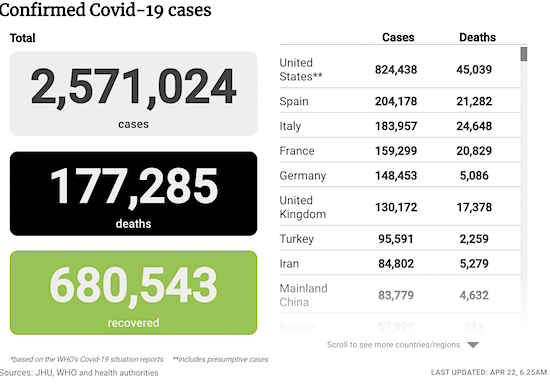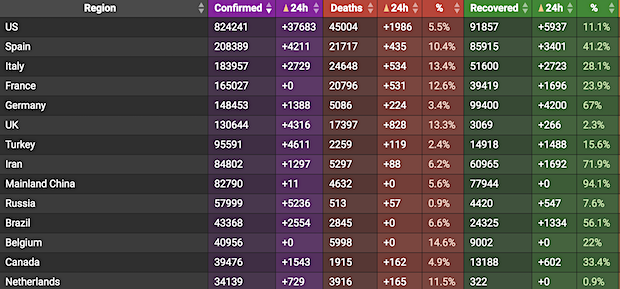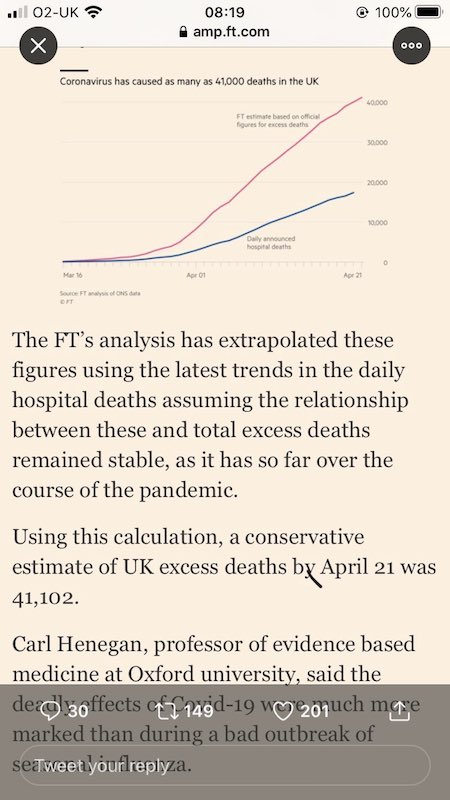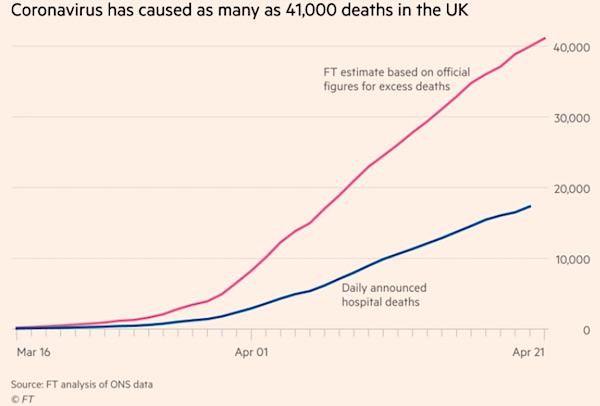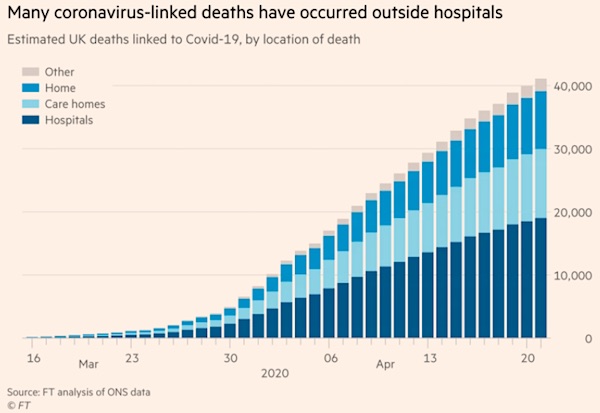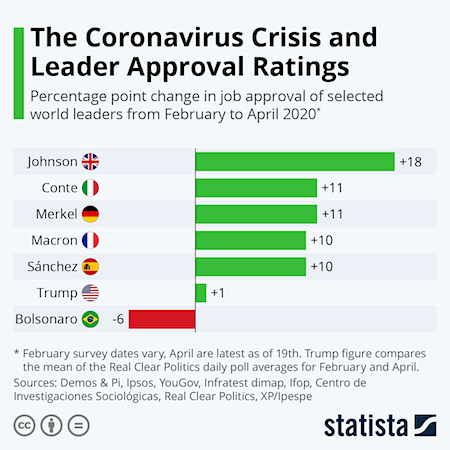
Robert Capa Model wearing Dior on the banks of the Seine, Paris 1948

Calling your political opponents “enemies of the state” is not done even in 2020 America.

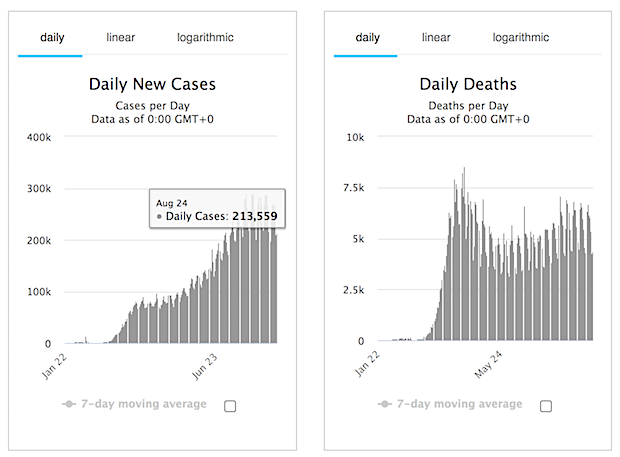
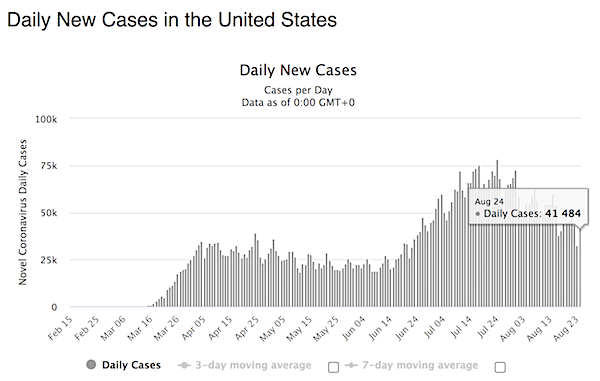

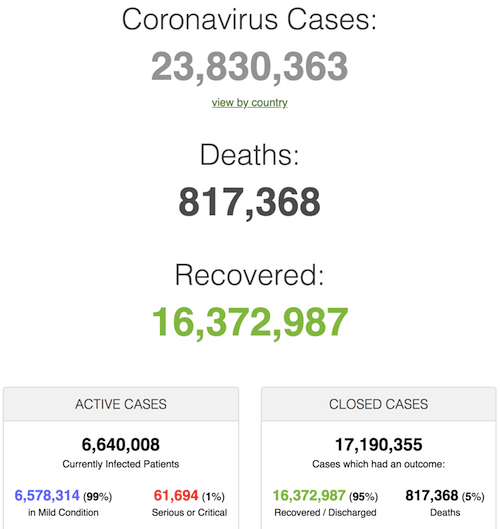

Way over the line. There are still things you can’t say even in the 2020 US.
And you thought Biden was dementing…
Nancy, you’re 80. Call it a day.
• Pelosi Calls Republicans ‘Domestic Enemies Of The State’ (ZH)
House Speaker Nancy Pelosi (D-CA) raged against President Trump and Congressional Republicans on Monday, telling MSNBC that they’re “domestic enemies” of election integrity and “enemies of the state.” Pelosi was speaking right after President Trump’s speech at the Republican National Convention, according to the Daily Caller. “We take an oath to protect and defend the Constitution from all enemies, foreign and domestic. And sadly, the domestic enemies to our voting system and honoring our Constitution are right at 1600 Pennsylvania Avenue with their allies in the Congress of the United States. But again, let’s just get out there and mobilize, organize, and not let the President deter anybody from voting. And again, support the postal system which is election central,” said the 80-year-old Democrat. “They’re doing everything they can; suppress the vote — with your actions, scare people, intimidate by saying law enforcement will be there, diminish the role of the postal system in all of this. It’s really actually shameful. Enemies of the state,” she continued.

Perhaps this guy means well, but to conclude from the UK’s botched version of a lockdown that NO lockdown can work, takes away all his credibility. Phrasing matters.
And besides, buddy, you’re the government advisor here. Own it.
• UK Lockdown Was A ‘Monumental Mistake’ And Must Not Happen Again (Exp.)
Lockdown will come to be seen as a “monumental mistake on a global scale” and must never happen again, a scientist who advises the Government on infectious diseases says.Mark Woolhouse said lockdown was a “panic measure” but admitted it was the only option at the time because “we couldn’t think of anything better to do”. But it is a crude measure that takes no accounts of the risk levels to different individuals, the University of Edinburgh professor said, meaning that back in March the nation was “concentrating on schools when we should have been concentrating on care homes”. The professor of infectious disease epidemiology said that the Government must now focus on increasing testing and striving to unlock society safely rather than restricting it further.
Prof Woolhouse OBE, a member of the Scientific Pandemic Influenza Group on Behaviours that advises the Government, said: “Lockdown was a panic measure and I believe history will say trying to control Covid-19 through lockdown was a monumental mistake on a global scale, the cure was worse than the disease. “I never want to see national lockdown again. It was always a temporary measure that simply delayed the stage of the epidemic we see now. It was never going to change anything fundamentally, however low we drove down the number of cases, and now we know more about the virus and how to track it we should not be in this position again.
“We absolutely should never return to a position where children cannot play or go to school. “I believe the harm lockdown is doing to our education, health care access, and broader aspects of our economy and society will turn out to be at least as great as the harm done by Covid-19.” He said that Sage, the government’s advisory board on dealing with Covid, needed to have members from a wider range of fields.

And here’s another genius: “..our descendants will mock us for believing masks slowed viral transmission.”
No they won’t, unless they’re as stupid as he is. Lockdowns and facemasks prevent transmission, no science is more basic than that. But you do have to use them wisely.
If you send people out into the street with mandatory masks on, then yes, they don’t prevent anything. Because there is no risk of infection there. But put them in a cramped room for a period of time, and they are very effective.
What is it with these people, is it all just about hearing their own voices, credibility be damned? Some virus got to their brains?
I’m seriously starting to wonder where the virus causes the most damage. And it doesn’t appear to be either in care homes or classrooms, but in much smaller spaces.
• Let’s Follow the History of Science Instead (AIER)
Democratic Presidential hopeful Joe Biden is only the most high-profile politician to promise voters that he will “listen to the scientists,” mandate masks, and shut down the economy again if they so advise. Even the humble members of the city council of Milledgeville, Georgia invoke “science” in four pages of “whereas-es” designed to justify a largely toothless mask mandate that directly contradicts a Georgia law against wearing masks in public (except for certain holidays, presumably to deter real crime) and the enforcement of which in some places in the city of 50,000 apparently hinges on the font size of a door notice. Strange times indeed, these. One wonders why we need to elect politicians at all if they will simply defer to “the” scientists. Ah, but there be the rub. Which scientists? They don’t agree on much, especially when it comes to the novel coronavirus and masks and such.
Should we listen only to “the” scientists on the government payroll? But then wouldn’t they essentially be unelected, unaccountable dictators? That sounds vaguely undemocratic. Sticky, this wicket! Plus, last time I checked, “the” scientists have no policy expertise in economics. Perhaps that does not matter as many economists also have no policy expertise in economics. Is that the role of politicians, then? To decide which type of scientists get to dictate in different policy areas? Perhaps Biden will listen to “the” economists on spaceship design or military tactics? I would pay good money to see that! (Seriously, it would be a horribly expensive boondoggle certain to raise my taxes.) Why is it so important to “listen to the scientists” anyway? Are they suddenly less fallible than previously? Is there any science to support that belief? Because let’s face it, “the” scientists have a pretty poor track record overall.

I’m afraid I simply don’t understand the reasoning. Black students don’t want to explain about racism? But isn’t that sort of the whole point?
• New York University To Implement Racial Segregation In Student Dorms (WSWS)
Since late June, the Office of Residential Life and Housing Services at New York University (NYU) has been working closely with a small, student-led task force to make racially segregated housing a reality in undergraduate student dorms. On July 20, Washington Square News, the weekly undergraduate student newspaper of NYU, published an article titled “Student-Led Task Force Calls for Black Housing on Campus,” in which it reported on the university’s willingness to help implement residential communities open solely to “Black-identifying students with Black Resident Assistants.” Since then, the university has officially given the project a green light, aiming to have NYU’s first segregated residential floor established by Fall 2021.
A little over two months ago, a recently organized advocacy group called Black Violets created an online petition demanding that the university “implement Black student housing on campus in the vein of themed engagement floors across first-year and upperclassmen residence halls.” In its petition, the group argues that “Too often in the classroom and in residential life, black students bear the brunt of educating their uninformed peers about racism.” African American students, the group states, desperately require a “safe space” where they can escape from students, staff and faculty of other races. There are over 20 Themed Engagement Communities at NYU, with themes ranging from film, literature and theater to technology, science and foreign languages. All floors are open to all students, who request residency on a specific floor prior to the start of the academic year.
The approval of a Themed Engagement Community open to students based on their race is new at NYU. However, it is not the first time that the Office of Residential Life and Housing Services has considered such a proposal. In 2002, an NYU senior submitted a plan to develop race-based housing for African American students, claiming that “such a housing program would unite African American students on campus” and better combat racial discrimination. This proposal was eventually rejected by the university after a brief review and discussion.
Now, despite signs of minimal support from the undergraduate student body—the online petition has garnered a mere 1,105 signatures out of the 26,733 total undergraduates currently studying at NYU—the proposal for race-based housing has been warmly welcomed by the university administration. There is nothing progressive about the establishment of racially segregated housing at NYU. It is irrelevant whether the segregation being implemented is voluntary or mandatory. Racial segregation, in all forms, is entirely reactionary. The vile argument advanced in the proposal is that all non-African American students, staff and faculty are, to varying degrees, hostile and dangerous to African American students. Their animosity stems from an inherent antipathy towards individuals of different races.

“Investors” gamble on gold, they gamble on the euro. And they feel confident they’ll be able to get out on time. Basic, really. Pump trillions into “markets” and this is what happens.
• Is The Euro Living On Borrowed Time? (Brown)
Given the way the euro has been rallying in the foreign exchange markets over the past three months, you would be forgiven for thinking the currency has become a beacon of stability in uncertain times. You couldn’t be further from the truth. The rebound in the euro is simply the flip side of the US dollar being undermined by growing uncertainty about the upcoming US presidential election in November and how the US authorities are coping with the coronavirus crisis. Global investors are simply taking time out from long dollar exposures, and euro bulls are simply filling a temporary void. It won’t last long. The euro is living on borrowed time and the deepening monetary muddle in Europe won’t help the currency once the dust settles on the US elections.
The euro looks overvalued and a prime target for an ambush later this year. Europe’s monetary pacesetter, the European Central Bank, seems to be fighting a losing battle, struggling to keep the European economy from slipping into a deeper recession. The more policy stimulus the ECB throws into the ring, the greater the damage to its monetary reputation, and to little avail so far. Despite close to 3 trillion euros of assets purchased so far under the ECB’s quantitative easing programme and interest rates steeped in negative territory, the economy of Europe is showing precious few signs of a return to normality. Europe’s three biggest economies, Germany, France and Italy, are all stuck in recession with little chance of output reaching pre-pandemic levels until 2022. Rumblings about throwing too much good money after bad are no surprise. The ECB’s defence is that it has no alternative, otherwise Europe might suffer an even worse fate.
Germany has given up the ghost on trying to control the ECB’s monetary excesses. There seems to be a palpable sense of “if you can’t beat them, join them” for the sake of presenting a united front and avoiding a damaging public row. In the pre-euro days, tough Bundesbank policies and the strong Deutschmark were solid anchors of the European monetary system, implacable yardsticks which helped other European countries govern their own performances. [..] The worry for markets is that the triple-A-rated ECB’s vaults are bursting with a surfeit of lower-quality debt from nations like Italy, Spain, Portugal, Greece and Ireland, countries which have required support in times of market stress in the aftermath of the 2008 crash. Like in the US subprime crisis, it’s fine while the charade lasts, but once confidence begins to wobble, that is where the danger lies.
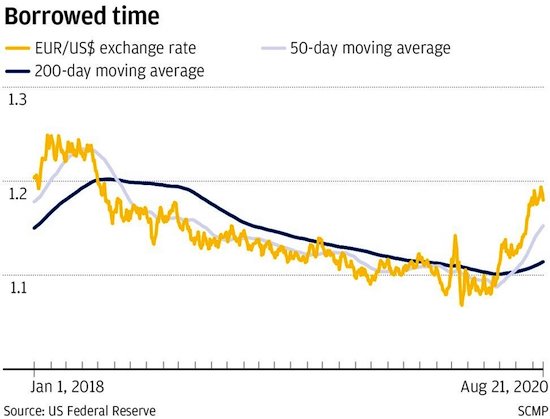

The Fed is going to try its hand at Abanomics?! Didn’t work for Japan. Remember, to raise inflation you need to raise the velocity of money. Which today meanns you have to raise the velocity of trillions of added dollars. Good luck with that.
• Powell Set To Deliver Speech Changing How The Fed Views Inflation (CNBC)
History will remember Paul Volcker and Jerome Powell as standing on the opposite ends of the inflation canyon, with the former taking desperate actions to try to tamp it down and the latter expected this week to announce an unprecedented effort to crank it back up. Volcker, the Federal Reserve chairman from 1979-87, ushered through a series of inflation-busting interest rate hikes that dragged the country into recession but won the fight against pricing pressures and spurred a powerful economic recovery. Powell, the central bank chief since 2018, is likely to detail a set of measures aimed at pushing inflation higher amid a coronavirus pandemic that has dragged the U.S. economy into one of its darkest hours.
While the average consumer might find it absurd to want to raise the cost of living, central bankers and economists see too little inflation also as a problem. It often reflects a slow-moving economy with a low standard of living. On top of that, the accompanying low interest rates give policymakers little wiggle room when crises happen and there’s a need to loosen policy. That’s why Powell, who will speak Thursday during a virtual version of the Fed’s annual Jackson Hole, Wyoming, conference, will outline what could be the central bank’s most active efforts ever to spur inflation back to a healthy level. The speech is titled “Monetary Policy Framework Review” and wraps up a yearlong examination both among central bank officials and with the public, during a series of open events, on what policy should look like in the future.
“The expectations are pretty high to get something meaningful on Thursday,” said Tom Graff, head of fixed income at Brown Advisory. “This is probably a historic speech.” One phrase Powell is likely to use is “average inflation” targeting. Simply, it means that the Fed, which has pegged 2% as a healthy level, will let inflation run higher than that for a while if it has spent a considerable time beneath that level. The Fed’s preferred inflation gauge has stayed below that level for all but two years since the Great Recession ended in mid-2009. It’s a mirror-image reversal of Volcker’s inflation-busting and sets the stage for a pivotal policy move.


“In the 1980s, energy companies made up as much as a quarter of the Dow. After Exxon’s exits on Monday, energy will account for just 2% of the index.”
• Exxon Mobil Dropped From The Dow After Nearly A Century (CBS)
Exxon Mobil, which joined the Dow Jones Industrial Average in 1928, is being removed from the blue-chip stock market index. Its replacement: enterprise software company Salesforce.com. Also leaving the index are drug company Pfizer and airplane and defense contractor Raytheon Technologies. They are being replaced by biotech Amgen and manufacturing conglomerate Honeywell. S&P Dow Jones Indices, the company that administers the index, announced the changes, which will take place August 31, on Monday. The index provider said the changes were necessary to make up for Apple’s impending stock split, which becomes effective the same day.
The Dow Jones is a stock-price-weighed index. Apple’s stock split, which will take the company’s shares to roughly $120, from $500, would have cut the Dow’s exposure to the technology sector. Monday’s changes would also help the Dow “add new types of businesses that better reflect the American economy,” the index company said. Energy giant Exxon Mobil joined the Dow 92 years ago as Standard Oil of New Jersey, and it’s the oldest member of the index. The Dow’s last original member, General Electric, was removed in 2018. Exxon Mobil was the most valuable company in the United States for much of the early 2000s and as recently as 2011, when it hit a market value of just over $400 billion. Apple overtook Exxon in 2012, and much of the technology sector followed.
Earlier this month, Apple’s market value topped $2 trillion, making it the first U.S. company to reach that milestone. Meanwhile, Exxon’s market value has sunk to $175 billion. The company has been plagued in part by claims that it deliberately concealed the damage that the oil it has long extracted and refined into gasoline was doing to the planet. [..] In the 1980s, energy companies made up as much as a quarter of the Dow. After Exxon’s exits on Monday, energy will account for just 2% of the index.

A loss of 40% in 5 years. Wow.
• 1 In 3 Cars Worldwide Is Produced In China (ZH)
Almost one in three – or 32 percent – of all cars produced worldwide in 2019 came out of China. As shown in numbers by the automobile manufacturers’ association OICA, the world manufactures less cars than it did in 2014, but, as Statista’s Katharina Buchholz notes, several Asian markets actually were able to grow their production volumes. India exhibited one of the biggest increases – almost 15 percent in five years to 3.6 million cars annually.
The biggest decrease in production hit the ailing U.S. car industry, which lost 40 percent of its domestic production between 2014 and 2019. Germany also make less cars at home, but German manufacturers like Volkswagen are a part of the rising Chinese production. In 2019, the Chinese market accounted for around 39 percent of Volkswagen’s total sales. Shifting production sites are only one aspect of the internationalization of the car industry. Know-how also migrates with production [..]
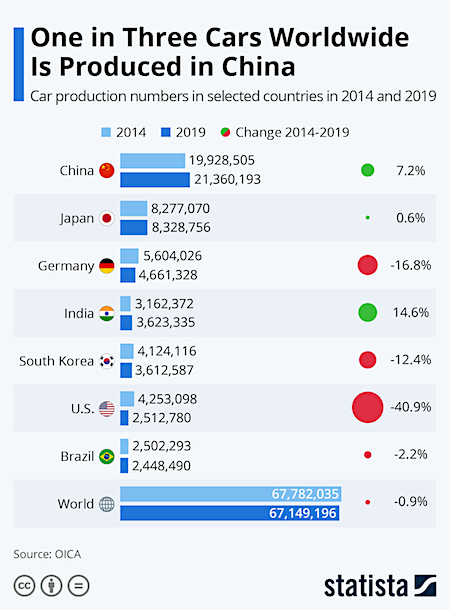

Erdogan has ever less to lose. His popularity at home is decreasing fast, with the lira in the gutter. Greece’s friends better start raising their voices.
• Greece, Turkey Heading For New Crisis (K.)
Just when it seemed that Greece and Turkey were entering a phase of de-escalation, the two countries appeared on Monday to be heading for another crisis in the Eastern Mediterranean. The decision by Ankara for an extension of the duration of exploratory activities by the Oruc Reis survey vessel in areas within the Greek continental shelf prompted a response by Athens with Tuesday’s aeronautical exercise that begins on Tuesday at dawn over a large area from the south of Kassos to the south of Kastellorizo. The exercise will take place in areas included in the navigational advisory, or Navtex, issued by Turkey for the Oruc Reis within the Greek continental shelf. The exercise will last until Thursday night.
Turkey’s move to extend the activities of the Oruc Reis essentially raises obstacles to the German mediation effort which continues on Tuesday with visits to both Athens and Ankara by German Foreign Minister Heiko Maas. Meanwhile, tensions were further augmented on Monday night by Turkish President Recep Tayyip Erdogan, who issued direct war threats against Greece, which he said is being “deceived” by other countries into pursuing the course of action it is taking. “When an issue arises in the future, then these forces will disappear and Greece will be left alone,” he said, adding that “from now on, Greece will be responsible for all conflicts in the region and it will be at a disadvantage.” He also described the aeronautical exercise announced by Athens as “useless” and dangerous for navigation.
Shortly before Erdogan’s remarks, Ankara announced new exercises off southern Crete for Tuesday morning, in an area several miles south of the prefecture of Lassithi. The area is located approximately on the borders described in the Turkey-Libya maritime borders memorandum. At the same time, Athens is building a network of important military collaborations, as joint exercises are also expected with French Rafale jets based in Cyprus.

Conflicting stories about the violence. Kenosha was a hellhole again last night. At some point, Trump will have to act. And that’s what the Dems are hoping for.
• Biblical Travails (Jim Kunstler)
Could the country even stand another full-on political convention after the Democrats’ nauseating extravaganza last week? The nation is so marinated in agitprop, disinfo, and straight-up mendacity that all the intelligence has been leached out of population, perhaps even the will to live. A Republican convention complete with the usual showboating might deplete the remaining oxycontin supply across the land as unemployed millions, mulling over rents overdue and unmet car payments, resort to vodka, Xanax, cough syrup, and airplane glue to quell the pain induced by unbridled political bullshit. As BLM might put it: “Know whum sayin’?
Speaking of BLM, Sunday one Jacob Blake, 29, was apparently shot in the back by police in Kenosha, Wisconsin, while getting into a car. The incident inspired a night of BLM rioting and looting in downtown Kenosha, with excellent prospects for violence to spread to other cities. Mr. Blake was hospitalized and survives, so far. He was not complying with police instructions in the process of his arrest. He had been previously arrested in 2015 and charged with brandishing a gun in a barroom. Upon his arrest then, the gun was found on the floor of his car. In the latest incident, Kenosha police were responding to a domestic abuse complaint. There was an active warrant out on Mr. Blake.
Also over the weekend, police in Lafayette, Louisiana, shot and killed 31-year-old Trayford Pellerin outside a convenience store he was entering while brandishing a knife. They had followed him from another convenience store in the vicinity where he “created a disturbance with a knife.” Mr. Pellerin apparently refused to comply with police orders to get on the ground. Ben Crump, a civil rights lawyer hired to represent the Pellerin family during the investigation into the shooting, said, “His family believes that he was suffering a mental illness crisis and what he needed was a helping hand. But what he got was what looks like 11 bullets.” His mother told the Associated Press that Mr. Pellerin had sought therapy for social anxiety.

A line used so much people have become immune to it.
• UN World Food Program Seeks To Prevent ‘Famine Of Biblical Proportions’ (ZH)
While virus cases and deaths dominate headlines, other humanitarian crises also need attention, that is, an emerging “famine of biblical proportions” that threatens much of the world, United Nations World Food Program (WFP) Director David Beasley told TASS News last weekend in an interview. Beasley said the WFP is requesting $5 billion in emergency funds within the next six months that will help in the effort to thwart a global famine. “All the data we have, including WFP’s forecast of an 80% increase in the number of food-insecure people – from 140 million before the pandemic to 270 million by the end of this year – points to a real catastrophe, a famine of biblical proportions, “he said.
The dramatic rise in the number of people who don’t have the means to feed themselves because of depressionary unemployment, supply chain breakdowns, and crop failures is set to cause long-term economic damage that could prevent a vibrant economic recovery. Beasley said, “it is clear that social tensions will escalate, migration will increase, conflicts will expand, and hunger can affect those who have not experienced it before.” Even in the US, a developed world economy, tens of millions of folks have gone hungry, now relying on government aid and food banks for survival. He noted that countries in the 2008 financial crash with a “stronger social protection system” were less impacted by famine.
WFP projections show significant increases in malnourished people in Latin America, countries in Eastern and Central Asia, and Sub-Saharan Africa, had a doubling of the number of people going hungry in a short period. “World hunger is already sky-high, and if we do not act immediately, many will die, children will suffer the consequences of malnutrition for many years to come, and the whole world will be thrown back, having lost all the gains in the fight against hunger of the last decade. Will be incredibly high, we need to act quickly and wisely, balancing immediate relief and long-term recovery,” Beasley said. He added: “WFP’s mission is to provide food to 138 million people in 2020, the largest humanitarian operation in history. And this unprecedented crisis requires an incredible amount of money.”

We try to run the Automatic Earth on donations. Since ad revenue has collapsed, your support is now an integral part of the process.
Thank you for your ongoing support.



Support the Automatic Earth in virustime.



